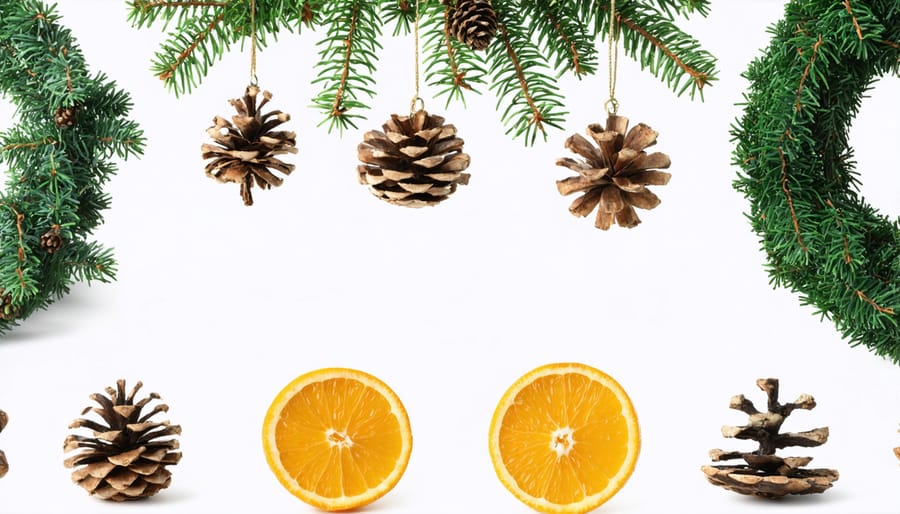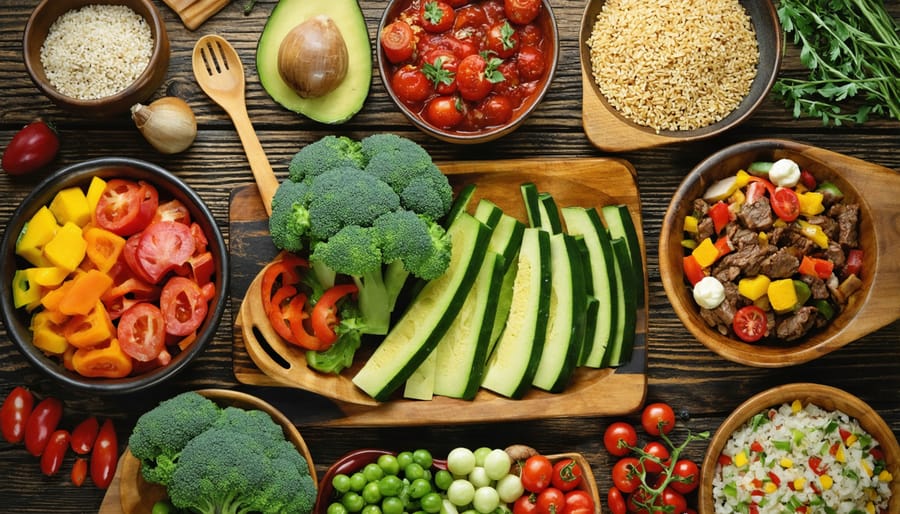
Ellen G. White, a prominent Seventh-day Adventist pioneer, offered timeless wisdom about Christmas that resonates powerfully with modern celebrations. While acknowledging that December 25th wasn’t likely Christ’s actual birth date, she encouraged families to embrace Christmas as an opportunity for meaningful spiritual reflection and generous giving. In her writings, particularly in “The Adventist Home,” White presented Christmas as a chance to redirect the season’s typical materialism toward purposeful celebration that honors God and serves others.
Rather than rejecting Christmas traditions outright, White advocated for transforming them into occasions for teaching children about Christ’s love and cultivating a spirit of selfless giving. She specifically recommended using the holiday season to help those in need, suggesting that families could make their celebrations more meaningful by sharing resources with the less fortunate. This balanced perspective offers contemporary families a thoughtful framework for celebrating Christmas in a way that aligns spiritual values with joyful celebration, without falling into excessive commercialism or complete withdrawal from cultural traditions.
Ellen White’s Core Christmas Principles
Focus on Simple Joy Over Extravagance
Ellen G. White advocated for a Christmas celebration that focused on the simple joys of giving and fellowship rather than lavish displays of wealth. She encouraged families to use the holiday season as an opportunity to teach children about generosity and gratitude, suggesting that modest gifts and heartfelt gestures held more value than expensive presents.
In her writings, she emphasized that the true spirit of Christmas wasn’t found in elaborate decorations or costly celebrations, but in showing love to others and remembering the humble birth of Christ. She particularly recommended using the holiday as a time to help those in need, suggesting that families redirect some of their Christmas spending toward charitable causes.
White believed that excessive holiday spending and materialism could distract from the season’s spiritual significance. Instead, she promoted activities like family gatherings, singing carols, and sharing simple meals together. These meaningful celebrations, she taught, would create lasting memories while keeping our hearts focused on gratitude and service to others.
The simplicity she advocated wasn’t about deprivation, but rather about finding joy in meaningful connections and purposeful giving.

The Gift of Service to Others
Ellen G. White consistently emphasized that Christmas should be a time of selfless giving and service to others. She encouraged believers to look beyond their own families and consider those in need during the holiday season. Rather than spending lavishly on gifts for those who already have plenty, she suggested redirecting Christmas expenses toward helping the poor, supporting missionary work, and bringing joy to the less fortunate.
In her writings, she specifically mentioned using the holiday season as an opportunity to visit the sick, comfort the lonely, and provide for orphans and widows. She believed that true Christmas joy comes from making others happy and reflecting Christ’s love through practical acts of service.
One particularly touching suggestion she made was to involve children in charitable activities during Christmas, teaching them the value of giving rather than just receiving. She saw this as a way to counter the growing commercialization of the holiday while instilling lasting values of compassion and generosity in young hearts. For White, Christmas presented the perfect opportunity to demonstrate Christ-like love through meaningful service to our communities.
Eco-Friendly Holiday Celebrations Inspired by White’s Principles
Sustainable Gift-Giving Ideas
In line with Ellen White’s emphasis on simplicity and meaningful giving, let’s explore eco-friendly gift ideas that honor both her principles and our planet. Consider creating meaningful non-material gifts that focus on experiences and personal connections rather than commercial items.
Handmade presents hold special significance – try crafting natural soaps, knitting cozy scarves from sustainable yarn, or preparing homemade preserves from locally sourced ingredients. These thoughtful creations not only reduce environmental impact but also share your time and talents with loved ones.
Consider gifting potted herbs or small fruit trees, which provide both beauty and sustenance while connecting recipients with nature. Educational gifts like books on sustainable living or workshops on organic gardening align perfectly with White’s emphasis on practical knowledge and stewardship of God’s creation.
Service-based presents also embody White’s values – offer to teach a skill, help with home projects, or provide childcare. These gifts create lasting memories while consuming minimal resources. For children, consider wooden toys or educational materials made from sustainable materials, focusing on items that encourage creativity and learning rather than passive entertainment.
Remember to use eco-friendly wrapping alternatives like fabric gift bags, recycled paper, or even beautiful reusable containers that become part of the gift itself. This mindful approach to gift-giving honors both spiritual values and environmental responsibility.
Natural Holiday Decorations
Ellen White’s emphasis on simplicity and appreciation of nature’s beauty aligns perfectly with creating eco-friendly holiday decor. Instead of purchasing artificial decorations, consider bringing the outdoors in with natural elements that capture the season’s essence. Pine cones, collected during family nature walks, can be arranged in beautiful bowl displays or transformed into ornaments. Fresh evergreen branches not only fill your home with an authentic Christmas scent but also create stunning garlands and wreaths.
For those interested in DIY holiday decorations, dried orange slices, cinnamon sticks, and cranberry garlands offer both visual appeal and natural fragrance. These decorations honor White’s principles of mindful celebration while being environmentally conscious. Consider creating centerpieces with local winter berries, pine needles, and fallen branches arranged in recycled glass jars.
Children can participate by collecting natural materials and crafting their own decorations, fostering both creativity and environmental awareness. This approach not only reduces waste but also creates meaningful family traditions. Remember to responsibly source materials, taking only what you need and ensuring your decorating practices respect nature – a principle that would certainly align with White’s teachings about stewardship of God’s creation.

Mindful Holiday Meal Planning
Plant-Based Holiday Recipes
In keeping with Ellen White’s teachings on health and wellness, celebrating the holidays with nourishing plant-based dishes can help create lasting holiday memories while honoring her dietary principles. Consider preparing a festive lentil loaf as your centerpiece, garnished with fresh herbs and cranberries for a pop of color. Roasted root vegetables like sweet potatoes, carrots, and parsnips drizzled with maple syrup make wonderful sides that embrace seasonal produce.
For appetizers, try preparing stuffed mushrooms with a savory mixture of nuts, herbs, and whole grain breadcrumbs. A colorful winter salad featuring pomegranate seeds, oranges, and pecans adds both nutrition and visual appeal to your holiday spread. Don’t forget to include protein-rich dishes like chickpea pot pie or walnut-stuffed acorn squash.
Desserts can be both wholesome and delicious with options like apple-date crisp topped with oat streusel or pumpkin pie made with cashew cream. These plant-based alternatives not only align with White’s emphasis on natural, wholesome foods but also offer modern families a healthier way to celebrate the season while maintaining the joy and warmth of traditional holiday gatherings.
Remember to incorporate plenty of fresh fruits, nuts, and whole grains – all foods that White specifically recommended as part of a healthy diet. These thoughtful food choices can help make your holiday celebration both meaningful and nourishing.

Zero-Waste Holiday Kitchen Tips
In keeping with Ellen White’s principles of mindful stewardship and resourcefulness, let’s explore how we can create a more sustainable holiday kitchen. I’ve found that planning ahead is absolutely key to reducing waste during the festive season. Start by taking inventory of what you already have before shopping, and create detailed shopping lists based on your exact recipe needs.
Consider preparing smaller portions if you’re hosting an intimate gathering, or coordinate with guests to share dishes potluck-style. When prepping vegetables, save those carrot tops, celery leaves, and onion skins for making a rich homemade stock. Store leftovers properly in clear containers at eye level in your fridge so they don’t get forgotten.
Get creative with yesterday’s feast! Transform leftover mashed potatoes into savory breakfast pancakes, or blend roasted vegetables into a warming soup. Stale bread makes excellent homemade stuffing or breadcrumbs. Even turkey bones can simmer into a nutritious bone broth for future meals.
For storage, opt for reusable containers and beeswax wraps instead of disposable options. Compost any unavoidable food scraps to nourish next year’s garden. Remember, being mindful of waste isn’t just about saving money – it’s about honoring the resources we’ve been blessed with and practicing good stewardship, values that align perfectly with both environmental consciousness and spiritual mindfulness.
As we reflect on Ellen G. White’s teachings about Christmas, it’s remarkable how her century-old wisdom aligns perfectly with today’s growing movement toward mindful and sustainable celebrations. Her emphasis on simplicity, meaningful giving, and focusing on others rather than material excess speaks directly to our modern concerns about overconsumption and environmental impact.
By following White’s guidance to avoid extravagant spending and instead redirect our resources toward helping others, we naturally create more eco-friendly holiday celebrations. Consider how her suggestion to give practical, useful gifts mirrors current minimalist philosophies and zero-waste practices. When we choose to make homemade presents or give experiences rather than store-bought items, we’re both honoring her principles and reducing our environmental footprint.
White’s encouragement to focus on Christ’s mission of service can inspire us to create new holiday traditions that benefit both our communities and our planet. This might mean organizing neighborhood cleanup events, starting a holiday composting initiative, or teaching children to make gifts from recycled materials. These activities combine spiritual meaning with environmental stewardship.
The holiday season doesn’t need to be a time of excess and waste to be meaningful. By embracing White’s teachings about thoughtful giving, focusing on others, and celebrating with purpose, we can create Christmas traditions that are both spiritually fulfilling and environmentally responsible. Let’s carry forward her legacy by showing that the true spirit of Christmas can thrive in perfect harmony with our commitment to caring for God’s creation.



